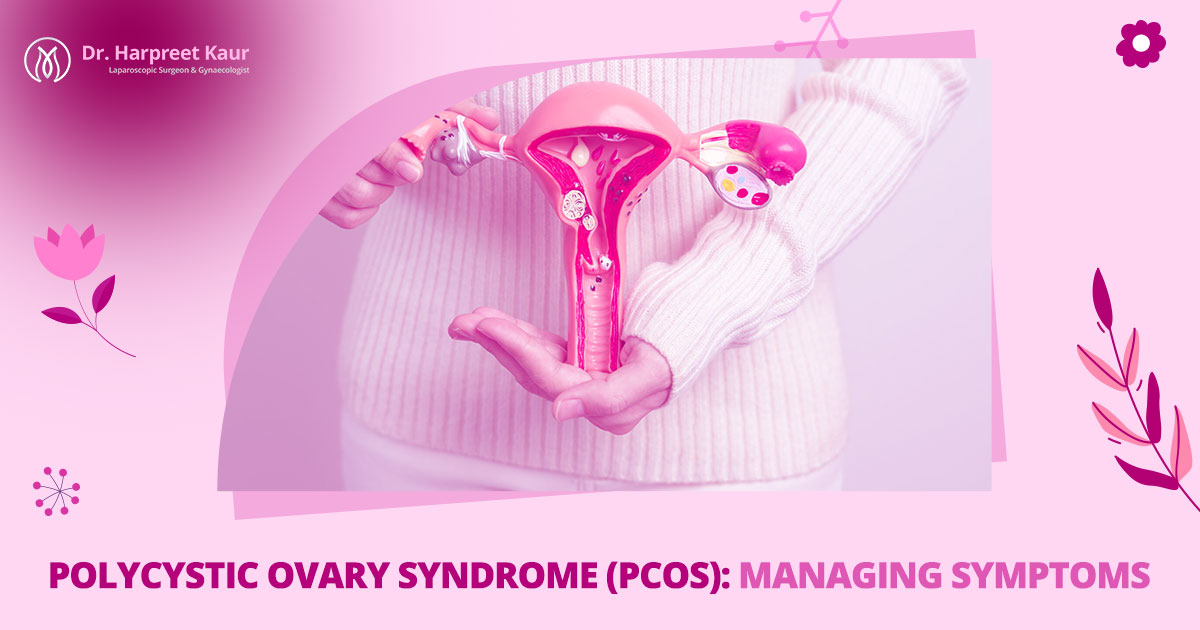Clinic Location
Care n Cure Clinic, Nayapalli, Near Hotel Crown, Bhubaneswar
For Consultation
+91 7008110200
+91 9090910009
Work Hours
Mon - Fri : 05:30 - 07:30
- Home
- About Doctor
- Services
Postnatal care
Gynaecological services
- General Consultatnt
- Adolescent Clinic
- Well Women Clicnic
- Gynaecological Surgeries
- Gallery
- Your Pregnancy
- Training
- Contact
- Feedback
- Blog
- Home
- About Doctor
- Services
Postnatal care
Gynaecological services
- General Consultatnt
- Adolescent Clinic
- Well Women Clicnic
- Gynaecological Surgeries
- Gallery
- Your Pregnancy
- Training
- Contact
- Feedback
- Blog
- Home
- About Doctor
- Services
Postnatal care
Gynaecological services
- General Consultatnt
- Adolescent Clinic
- Well Women Clicnic
- Gynaecological Surgeries
- Gallery
- Your Pregnancy
- Training
- Contact
- Feedback
- Blog
Polycystic Ovary Syndrome (PCOS): Managing Symptoms

Polycystic Ovary Syndrome (PCOS) is a common hormonal disorder affecting millions of women worldwide. Known for causing irregular menstrual cycles, weight gain, and hormonal imbalances, PCOS can significantly impact a woman’s health and well-being. Dr. Harpreet Kaur, a renowned gynecologist, shares insights on the symptoms, causes, and treatments available for managing PCOS effectively.
What is PCOS?
PCOS is a hormonal disorder that results in the formation of small cysts on the ovaries, disrupting their regular functioning. This condition can lead to various symptoms, which vary widely from one individual to another. Diagnosing and managing PCOS early is crucial to avoid complications.
Common Symptoms of PCOS
- Irregular Periods: One of the most common symptoms of PCOS is irregular or infrequent menstrual cycles due to hormonal imbalances.
- Weight Gain: Many women with PCOS experience weight gain, especially around the abdomen, which can further exacerbate hormonal imbalances.
- Excessive Hair Growth and Acne: High levels of androgens can cause hirsutism (excessive hair growth) on the face and body, as well as persistent acne.
Causes and Risk Factors
While the exact cause of PCOS is unknown, several factors may contribute, including:
- Genetics: PCOS can run in families, indicating a possible genetic predisposition.
- Insulin Resistance: Many women with PCOS have insulin resistance, causing the body to produce more insulin, which in turn increases androgen production and leads to symptoms like excessive hair growth.
- Inflammation: Chronic low-grade inflam
Diagnosis and Treatment
- Diagnosis
Dr. Harpreet Kaur emphasizes a thorough diagnostic approach, including hormonal blood tests, ultrasound, and patient history, to confirm PCOS. Identifying the condition early allows for better management and improved outcomes. - Lifestyle Modifications
Dr. Kaur recommends incorporating regular exercise, a balanced diet, and weight management to alleviate symptoms of PCOS. These modifications can improve insulin sensitivity, reduce androgen levels, and help regulate periods. - Medications
Depending on individual needs, Dr. Harpreet Kaur may prescribe hormonal contraceptives to regulate menstrual cycles, anti-androgen medications to control excessive hair growth, and insulin-sensitizing drugs to address insulin resistance. - Fertility Treatments
For women looking to conceive, specific fertility treatments like ovulation-stimulating medications may be necessary. Dr. Kaur works closely with each patient to develop a personalized fertility plan.
The Importance of Ongoing Support
Managing PCOS is a long-term commitment. Dr. Harpreet Kaur stresses the importance of regular check-ups, patient education, and emotional support, as living with PCOS can be challenging. By building a strong doctor-patient relationship, Dr. Kaur ensures her patients feel empowered and supported on their journey to better health.
Conclusion
PCOS may be a complex condition, but with early diagnosis, lifestyle changes, and the right medical interventions, it can be effectively managed. Dr. Harpreet Kaur’s compassionate approach and expertise make her a trusted ally for women seeking to understand and manage PCOS.
For more information on PCOS and other gynecological concerns, visit Dr. Harpreet Kaur’s website.

